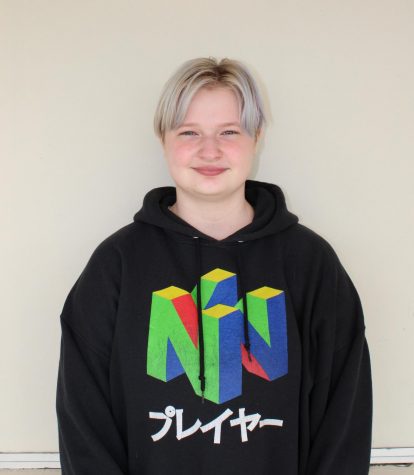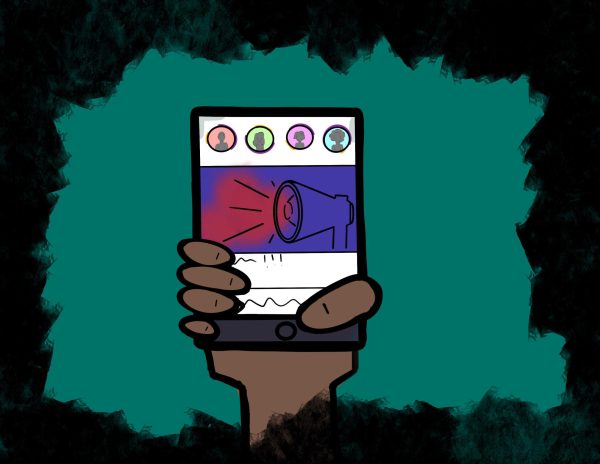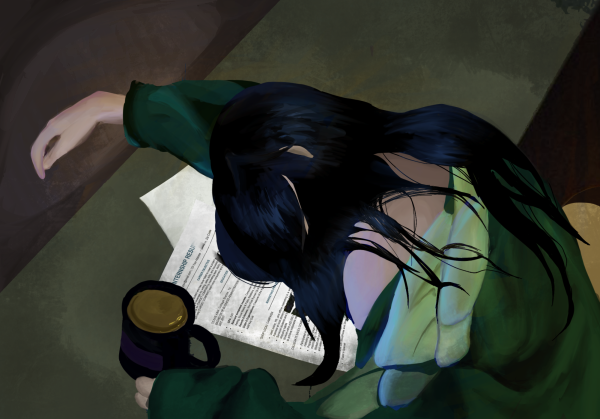Dark Humor Isn’t Funny
Urban Dictionary defines dark humor as “a form of humor involving a twist or joke making the joke seen as offensive, harsh, horrid. Yet the joke is still funny… In a way, it could be seen as the jokes are so horrible in their twist that it makes it funny.” This subset of comedy has existed in society for as long bad things have happened – known first as “Black Humor” and used to describe the writing of satirist Jonathan Swift. However, with the newfound connection over the global web that defines this current century, dark humor has dominated our internet culture.
But the thing is, the dark humor that we observe in the contemporary era, that once began as cynical criticisms of larger systems, has devolved into a contest, a competition of who can be the most offensive with minority groups as collateral.
You’ve certainly heard it before – jokes about one’s race, about another person’s trauma, excused with a simple “it’s just a joke.” Centuries of genocide, 400 years of chattel slavery, rape, and other traumatic events are all reduced to comedic fodder.
This callous amusement of other people’s suffering is merely a symptom of a much larger problem: desensitization. The use of such sensitive topics as joke material ultimately displaces such horrific incidents from their original, violent context.
This is not to say that dark humor in itself is bad. It can be funny – when it’s someone joking about their own situation. In the comedic scene, there is a certain axiom, a self-evident principle, known as: “punching up versus punching down.” In terms of power dynamics, your social power (influenced by your identity, influence, etc) affects the jokes that you make. “Punching up” – joking about people of higher power and influence – is encouraged; “punching down” – joking about people of lower power and influence – is not. It is a simple, easy to understand concept.
Obviously, people are entitled to whatever opinions they want to have, to make whatever jokes they want to make. Assuming you live in America, the First Amendment protects you and your right to make whatever outlandish, offensive jokes you want to make. But it doesn’t absolve you from the consequences.
And anyways, this is comedy. The main goal is laughter. The fact of the matter is that jokes like these just aren’t funny. Offensive, certainly. But funny? Not so much. Most of these jokes that dark humor fanboys spout are overdone, overused, and overall unfunny. Consider the jokes about Africa starving: “the F in Ethiopia stands for food.” Not only is it inaccurate, it’s just not funny.
It is important to remember that we do not live in a vacuum – every individual has social power, and subsequently every joke they make has social influence, to the extent that your words may ultimately hurt the people around you.
So to the people who depend on offensive twists to their jokes to garner attention – have you tried genuinely being funny?
Your donation will support the student journalists of Campolindo High School's The Claw. Your contribution will allow us to produce more issues and cover our annual website hosting costs.

Senior V Rogers has had a passion for literature since they were young: “My bedtime stories were Baldwin and Angela Davis.” They have taken AP language...


Jack • Mar 20, 2025 at 8:32 pm
I agree with everything you said. It disgusts me how people think saying offensive/derogatory/insensitive things is funny. Things like that should be taken seriously and not as a “joke”.
Piotr • Aug 4, 2024 at 2:23 pm
I agree 100%, I’m glad someone said that. 🙂 Very nice article, thank you! 🙂